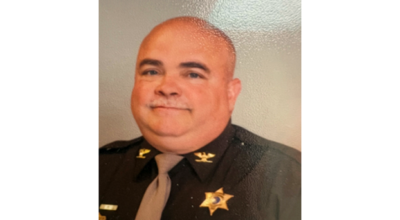County officials discuss fracking issues
Published 9:19 am Tuesday, October 7, 2014
While the issue remains outside of Cass County’s yard, officials on the board of commissioners continue to discuss their options on how to prevent fracking of the county’s oil wells.
Commissioner Bernie Williamson kicked off another round of discussion about the topic during Thursday’s board meeting. Both the county administrator and member of the public in attendance chimed in, debating on what steps the county should take next.
Williamson and Roseann Marchetti have been the two commissioners leading the charge, with the latter contacting representatives with the Michigan Department of Environmental Quality about the permitting process in the state.
“It seems that we’re in a good position to get a couple of presenters to address, on behalf of the DEQ, their position on fracking,” Williamson said.
County Administrator Roger Fraser has also worked on compiling information for the seven members of the board, drawing from academic sources, including a recent study from Michigan State University.
“From what I understand, you wanted to have information that wasn’t just the DEQ position on fracking,” Fraser said. “That’s what we focused on here, to bring you an academic and more neutral look at what fracking is and is not.”
This latest round of talks about fracking in the county was brought up during the previous meeting of the commissioners in September, after the commissioners received a copy of a DEQ permit allowing for a drilling company to use an enhanced oil recovery process for a number of oil fields in Calvin Township.
Though this process isn’t the same as the controversial hydraulic fracturing technique, which involves the breaking of sub-terrain rocks to extract oil and other natural resources, it raised a concern about lack of oversight the county has when it pertains to these kinds of operations within its jurisdiction. Per recent changes to state law, counties and townships lack the authority to block oil companies from receiving fracking or other types of permits from the DEQ, Williamson said.
“I spoke with one of our legislators, and I found out that the only teeth we do have at the moment is through affecting the enabling legislation,” she said. “That is one avenue we can pursue.”
James Bronke, a resident of Cassopolis, voiced his support of any county plan to oppose fracking within the area. He claimed that the chemicals involved in the process cause long-term damage to the underground rock bed, potentially resulting in earthquakes or other natural disasters.
“We’ve really got to do something about this,” he said. “Even though fracking is not threatened for our county, we ought to have a plan of attack.”






